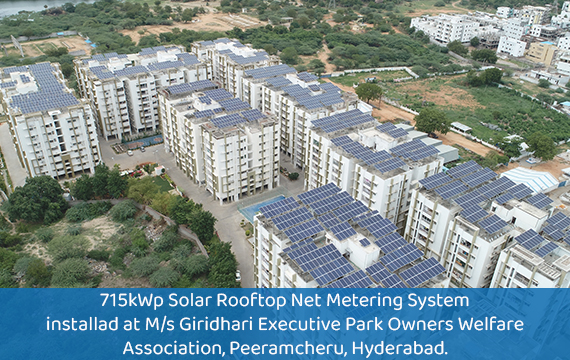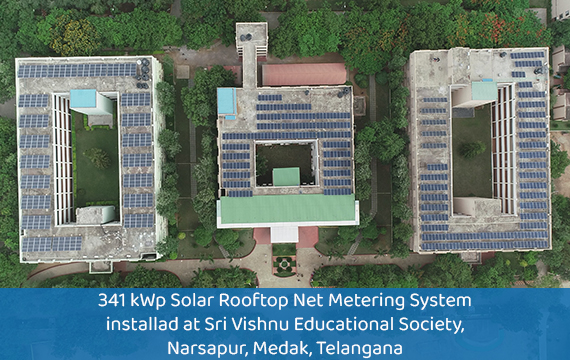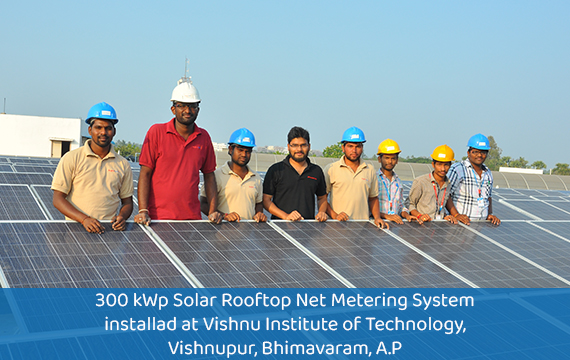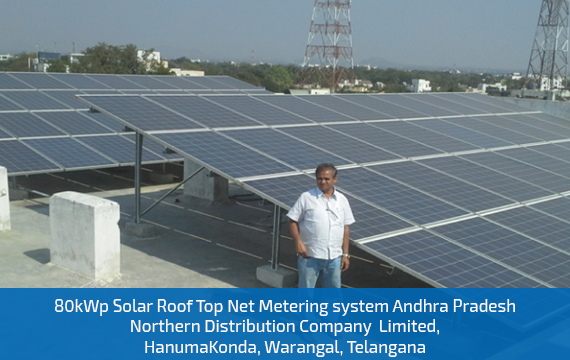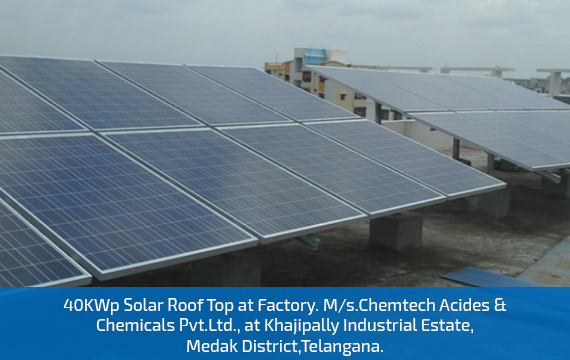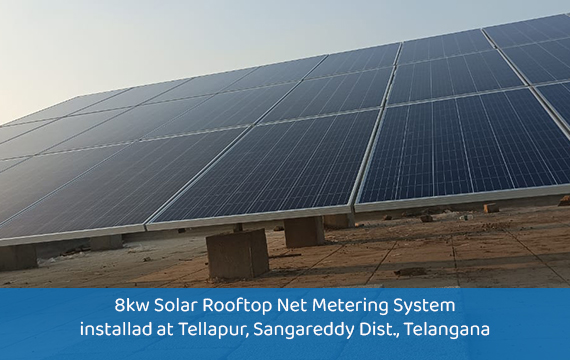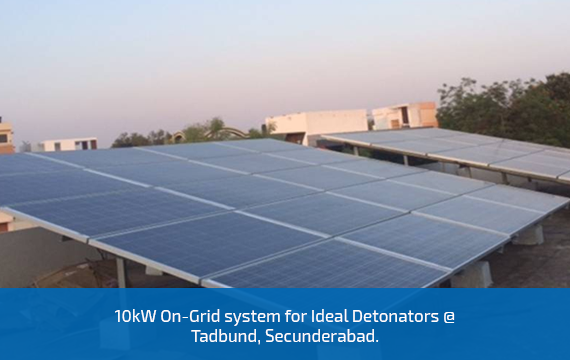Solar Rooftop Systems
Solar rooftop system with its vast range of advantages is certainly the most reliable alternative source of energy.
Unlike conventional energy sources using fossil fuels like coal, energy generated from solar rooftop system are more environment friendly and generate clean energy leaving almost zero or negligible pollution.
It has also emerged as a potential green energy source to address the climate change issues which is global worry.
By choosing to switch to solar you have made a right decision as you are going to reduce your carbon footprint on this planet and contribute towards a greener planet.
Solar panels are a lot less expensive than they were a decade ago. But they’re still an investment, and figuring out if you can install a system can be a tricky question. The first step is determining whether you can add solar panels to your roof. In addition to issues with your roof, you need to analyse your energy needs and calculate your average monthly energy requirements.
Once you assess your requirement and decided to go for solar energy system, you need to understand the commercial viability of the system.
For a solar energy system to work efficiently, a shadow free area is required so you can harness energy from the sunlight.
The system needs to generate your entire day's energy requirement during the sunlight time so you can use it when the sunlight is not available.
To use the energy in the absence of sunlight the energy must be stored where you can use it as required. There are two options for doing so, one is installing your own battery bank to store the entire energy at your location.
However, installing your own battery bank is not only expensive but also requires a regular maintenance operation which would be daunting.
The other option is to connect your solar rooftop energy system to the national grid and supply the excess energy generated to the grid so you can draw it via a net-meter system when your solar energy system is not generating any electricity in the absence of sunlight.
A net-meter system is not only economical, it also minimises the generation loss by supplying the generated excess energy to the grid directly.
A solar energy system which is connected via a net-meter to the national grid is referred to and on-grid system, and the one which is not connected to the grid is called an off-grid system.
Though an on-grid system is more economical and sustainable, it has its own drawbacks like in the case of blackouts.
Unlike conventional energy sources using fossil fuels like coal, energy generated from solar rooftop system are more environment friendly and generate clean energy leaving almost zero or negligible pollution.
It has also emerged as a potential green energy source to address the climate change issues which is global worry.
By choosing to switch to solar you have made a right decision as you are going to reduce your carbon footprint on this planet and contribute towards a greener planet.
Solar panels are a lot less expensive than they were a decade ago. But they’re still an investment, and figuring out if you can install a system can be a tricky question. The first step is determining whether you can add solar panels to your roof. In addition to issues with your roof, you need to analyse your energy needs and calculate your average monthly energy requirements.
Once you assess your requirement and decided to go for solar energy system, you need to understand the commercial viability of the system.
For a solar energy system to work efficiently, a shadow free area is required so you can harness energy from the sunlight.
The system needs to generate your entire day's energy requirement during the sunlight time so you can use it when the sunlight is not available.
To use the energy in the absence of sunlight the energy must be stored where you can use it as required. There are two options for doing so, one is installing your own battery bank to store the entire energy at your location.
However, installing your own battery bank is not only expensive but also requires a regular maintenance operation which would be daunting.
The other option is to connect your solar rooftop energy system to the national grid and supply the excess energy generated to the grid so you can draw it via a net-meter system when your solar energy system is not generating any electricity in the absence of sunlight.
A net-meter system is not only economical, it also minimises the generation loss by supplying the generated excess energy to the grid directly.
A solar energy system which is connected via a net-meter to the national grid is referred to and on-grid system, and the one which is not connected to the grid is called an off-grid system.
Though an on-grid system is more economical and sustainable, it has its own drawbacks like in the case of blackouts.
Ready to Switch to Solar Energy?
Some of our Past Projects
A glimpse on the Solar Rooftop Systems installed by Avghni Solar for Residential / Commercial around 2000 KWp at different Locations
